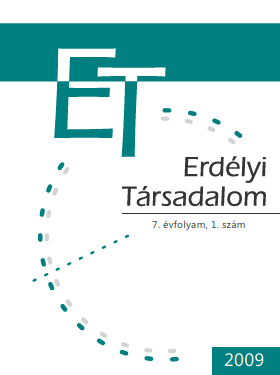A lokális elitek - Előreutaló megfontolások
Author(s): Imre Pászka / Language(s): Hungarian
/ Issue: 01+02/2009
Keywords: elite, capital, elite conversion, elite formation
The study summarize the results of a micro-area elite research (2002-2006, “Homokhat” 4 villages and Mórahalom town). The database is provided by narrative life-stories, which structural compilation potential is presented in an earlier theoretical and methodological monograph (Narratív történetformák…, 1. edition 2007, 2. edition 2009.). In the present study, therefore, is a partial summary of the attempt-application, which along the ridge of the classical elite-theories, but gearing the narrative aspects of interpretative contextualist view, tries to rethink the relationship between experience and theory. In the opinion of the author the types of the capital, the conversion of the elite, the elite formation, the selection, circulation concept-theory, the phenomena of projection which gained ground in the sociological theories of transition in the study of spatial structure of local society - but it seems neither at the macro level - do not have the significance attached to them. The author bring all these in correlation with the context of the market system imported after ‘89 and therefore not adapted, which influenced the saving of previous elite, with other words the changing of the configuration of “old-new” elite, the course of the formation of the elite. Imre Pászka dr. habil, Associate Professor, „Master Professor”, University of Szeged, Faculty of Arts, Department of Sociology.
More...

